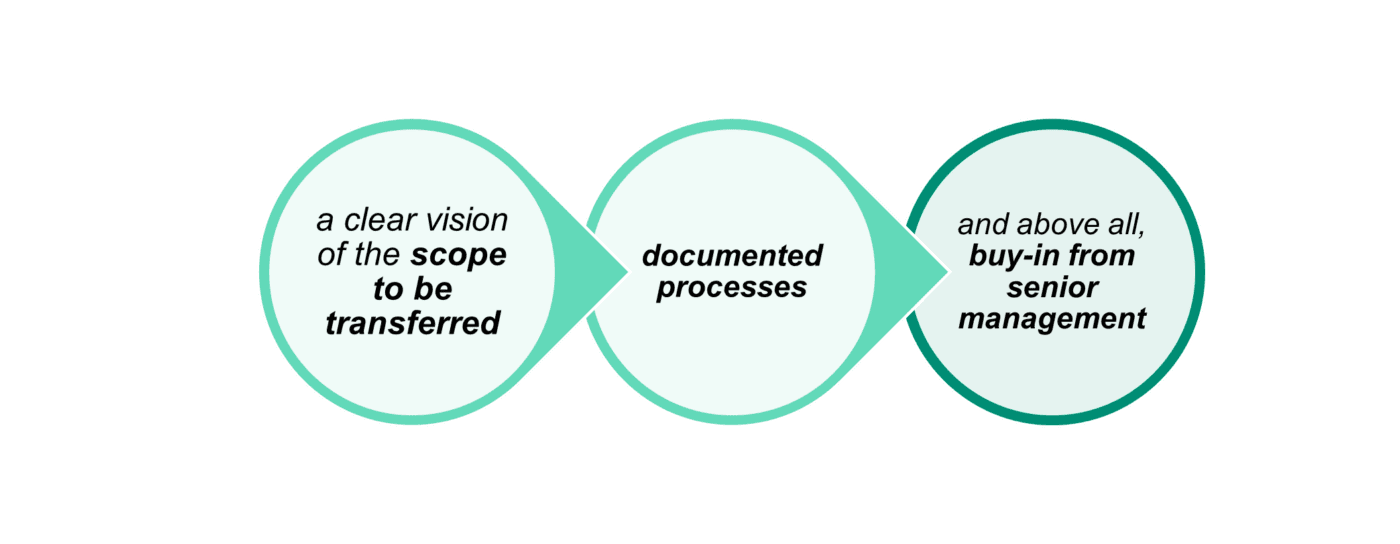For more than ten years, Itecor has been supporting its customers in hybrid mode from Switzerland and North Macedonia. This organisation, combining proximity, flexibility and operational excellence, enables the delivery of high value-added managed services in areas such as testing, development and application management.
In this discussion with Helen Bally, Head of the Quality Assurance & Testing service line, and Paul Barnabé, Head of Itecor Suisse Romande, we look at the main advantages of this delivery model combined with nearshore, the business drivers that make it particularly relevant today, and the practical steps a company can take to start a Managed Service with Itecor.
Why are companies today choosing a Managed Services model?
The primary objective is often very concrete: to do better with less. Our clients seek to maintain the same level of service, or even improve it, while optimising their costs. The Managed Service model responds precisely to this need: it allows them to maintain operational quality equivalent to or superior to that of an internal team, while introducing flexibility and budgetary visibility.
But beyond cost reduction, there is also a desire for peace of mind. Many IT organisations struggle to recruit and retain talent, whether in testing or development. By entrusting us with all or part of the service, they delegate the burden of recruitment, retention and management.
We become, in a way, their operational life insurance: they no longer have to manage turnover, profile availability or onboarding, as this is integrated into our model. Itecor manages the entire HR lifecycle of the service, from recruitment to training and retention, ensuring continuity without any additional burden on the client. The client also benefits from integrated technology monitoring and, if desired, management of their software factory tools or licences.
Several major players in Switzerland and France, in insurance, industry and public services, have already chosen this model with Itecor.
What are the main challenges or business drivers that encourage companies to consider a Managed Service?
The first driver is, of course, budgetary. But other issues quickly follow: scalability and organisational complexity.
Let’s take a concrete example: a large digital transformation programme often involves several service providers, each with their own contacts and working methods. The client has to coordinate all of this, which generates a lot of internal workload. With a Managed Service, you can have a single supplier, clear governance and precise contractual commitments: delivery times, service continuity, compliance with SLAs, operational KPIs, etc.
This is what we call model scalability: the ability to quickly adapt resources to needs—with very short ramp-up times, often around one month—while maintaining a high level of efficiency, in other words, operational and budgetary performance.
Finally, in areas such as testing, Managed Services make it possible to guarantee functional coverage and monitor quality indicators such as the automation rate or the number of defects detected in production.
We are moving from a resource-based approach to a results–based approach.
before getting started
To ensure the success of a Managed Service, it is essential to meet a few prerequisites:

This model is based on a relationship of trust and shared governance between Itecor and the client.
A management structure – a dedicated delivery manager on the Itecor side and a point of contact on the client side – ensures transparency, strategic alignment and long-term value through regular committees and performance reviews.
In practical terms, how do you start a Managed Service with Itecor?
Our approach is collaborative and iterative.
It all starts with an analysis phase: we identify stakeholders, gather documentation and assess the existing environment. Next, we define governance, processes, tools and a common service catalogue that clearly describes the services available, such as management, design and execution of functional and performance tests, and automation of regression or integration tests.
This phase is followed by an analysis of the application portfolio and ongoing projects, carried out jointly with the client. The aim is to determine the optimal capacity to be put in place (in terms of resources, skills and tools) for each functional area or product.
This fine-tuning process allows us to tailor the service to actual needs, avoid under- or over-capacity, and ensure efficient team allocation from the outset.
Once this framework is in place, we carry out a due diligence phase to test, adjust and validate the operating assumptions. Only after this stage do our formal SLA and KPI commitments take effect. Our commitments are structured around two families of indicators:
- “Market” KPIs/SLAs, which guarantee service continuity and reliability (satisfaction, turnover, replacement, meeting deadlines, reporting quality, etc.)
- “Service” KPIs/SLAs, which measure operational performance: test coverage, automation rate, production defects, false positives or negatives, etc.
This dual approach enables objective and transparent service management, promoting continuous improvement and making Itecor accountable for results.
The client thus maintains a clear view of the value created, beyond simple resource monitoring.
The service is deployed in stages: takeover of a functional or application scope (ERP, CRM, finance, etc.), gradual ramp-up, then extension to other areas. It is a controlled, structured transition – one without any disruption to service.
Delegation, Project, or Managed Service?
Delegation
Provision of staff; the client remains in charge of day-to-day operations.
Project
Commitment to a specific deliverable, in line with deadlines, costs and budget.
Managed Service
Long-term commitment to performance, quality and continuity of service.
Itecor often highlights Swiss Made in its approach. How does this make a difference?
It’s our signature. We offer a European nearshoring model, but with a typically Swiss culture of quality and rigour. This translates into robust processes, transparency in relationships and a constant focus on customer satisfaction.
To be successful, a Managed Service must be supported by strong management sponsorship, clear governance and a long-term relationship of trust. This is what allows value to be anchored over time and makes the service a real performance lever.
Our Managed Services are built on Swiss standards of reliability and compliance: data confidentiality and security, compliance with personal data protection regulations (LPD, GDPR), and service continuity.
This is a strong commitment that is recognised by our customers.
Unlike simple resource outsourcing, we offer our customers a model based on efficiency, governance and lasting trust. A controlled, scalable and, above all, deeply human service. Swiss style.




